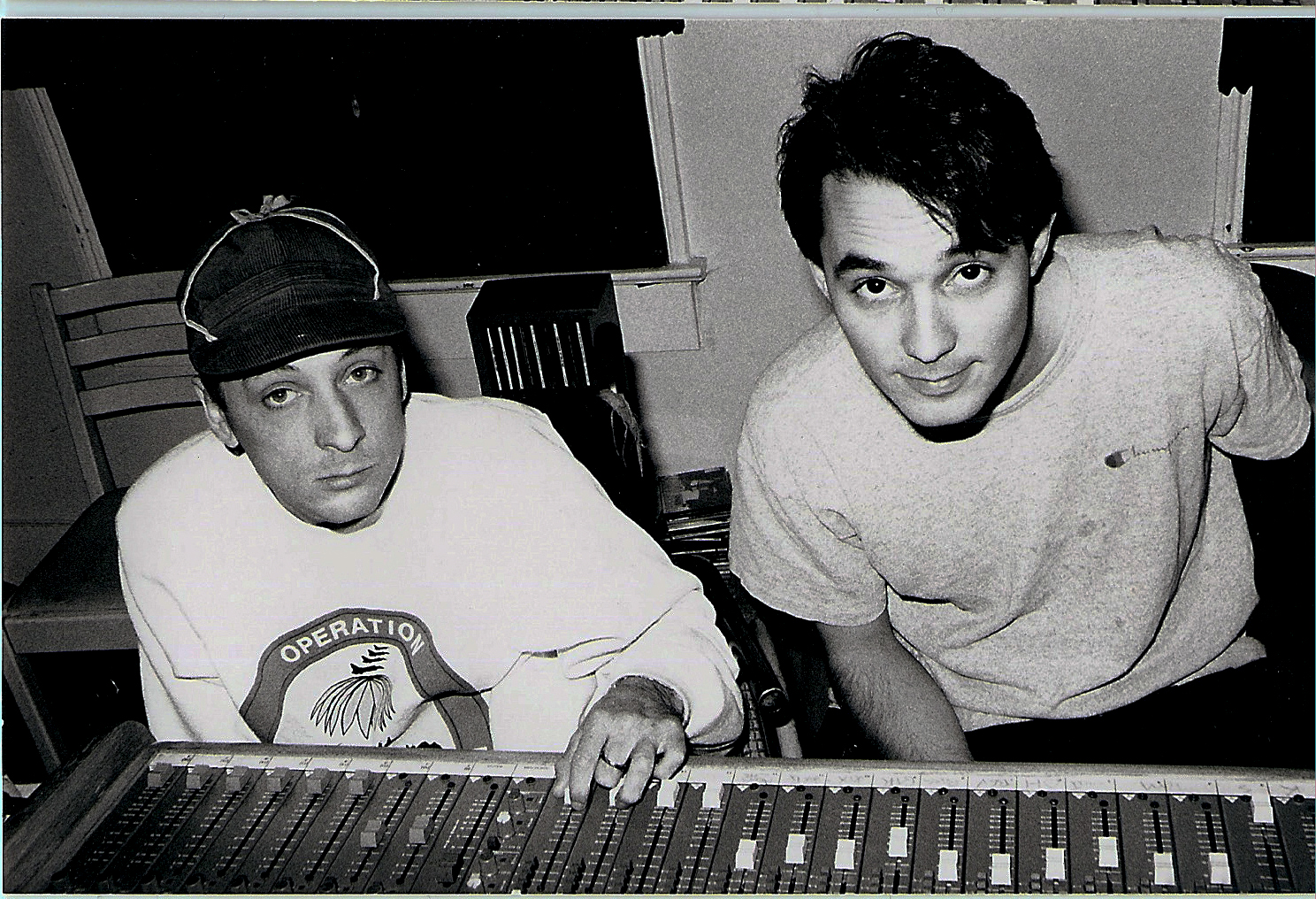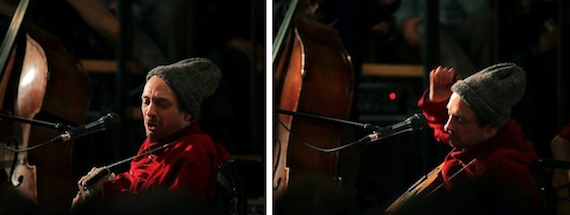- Michael has signed on to executive produce plan9films Vic Chesnutt project It Is What It Is–a 90-minute plus concert documentary filmed in Canada during Vic’s last tour. “Vic was one of the landmark artists and writers of our time,” said Michael.
- Vic Chesnutt (November 12, 1964 - December 25, 2009) was a singer-songwriter and multi-instrumentalist who lived in Athens, Georgia, United States. Around 1985, Chesnutt moved to Athens and joined the band, The La-Di-Da's. After leaving that group he began performing solo on a regular basis at the 40 Watt Club; it was there that he was spotted by Michael Stipe of R.E.M.; Stipe produced.
Vic Chesnutt was the real deal, a man who lived for music and who tirelessly deployed his impish, surly, witty, unflinching perspective in hundreds of songs featuring brilliantly unique wordsmithery and a profound playfulness that thumbed its nose at a life of seriously hard knocks.
Countless artists can produce convincing creative facsimiles of heartbreak and its many guises — alienation, guilt, regret, self-flagellating misery — in song, but none meets the task with more bitter pleasure, honesty or crooked-smile charm than the inimitable Vic Chesnutt. Phrasing his lyrics idiosyncratically in a cracked, unsteady voice, strumming simple acoustic guitar patterns from his wheelchair, the real auteur of Athens, Georgia produces aggressively vulnerable records that turn predictable emotions inside out, using the wrenching pathos of his sublime (but intentionally rough-hewn), self-effacing poetry. For an illuminating introduction to a unique figure, Peter Sillen’s half-hour 1993 documentary film Speed Racer: Welcome to the World of Vic Chesnutt is available on videocassette.
This colorful and witty storyteller doesn’t need to be reminded of his failings — he’s more than ready to sing about them, in a synergy of life and art that closes around his slight figure like a noose. In the bleak corrosion of Chesnutt’s tender idealism, a highly literate mind in a ruined body becomes a willful primitive with a ferocious and highly developed sense of irony. His skilled songwriting burns with reality’s pain while glowing with imagination.
Little was recorded in one 1988 day through the good offices of hometown pal Michael Stipe, who produced and hooked up the slow-cooking record deal. (“Production” in this case seems to have involved getting Vic in front of a microphone, although there is a trace of synthesizer on “Speed Racer.” “Stevie Smith,” which begins with a sound bite of the English poet, was cut separately with a small acoustic band.) In a reminiscence about the “Rabbit Box” he built as a child, Chesnutt catches a possum and a kitten, sets them free and breathes a sigh of relief, noting — with typical winsomeness — “We all three escaped safely.” In “Mr. Riely,” he passes along the bad news about “Joan, our ex-newspaper girl,” who has hung herself. “They found her by the frozen lake but it wasn’t frozen enough to skate but by the look on her face it must have been awful tempting.”
Stipe’s ambitious production — incorporating a handful of musicians to casually play cello, bass, drums and keyboards — elevates the sound of West of Rome all the way up to rudimentary. Chesnutt’s singing on “my second squirt” is concomitantly more assured and accomplished, which is about all that keeps the naked emotions surfacing in his songs from overwhelming him. He’s able to focus the jealousy and hurt in “Where Were You” enough to land a square, somber blow for romantic reliability, and the stark “Stupid Preoccupations” climbs down the abyss of self-loathing on sharp-tongued pitons tipped in poison, but the raw pain in “Withering” is beyond his control; the quiet dirge might as well be an anguished scream. Chesnutt settles for cryptic wordplay on “Lucinda Williams,” “Sponge” and “Latent/Blatant.” Elsewhere, Vic sends his arrows flying with pinpoint accuracy. He levels “Florida” as the “perfect place to retire from life,” slags off malicious gossips in “Soggy Tongues” and makes a delightful game out of his guarded optimism in “Steve Willoughby”: “Someday I’ll be a paragon/Like Louis Farrakhan/But today I simply am a mess.” No other mess ever recorded anything as lovely as the untitled two-guitar madrigal that ends this most challenging album.
Drunk is a great leap forward — in sound (some of it smartly electric), songwriting and vocal skill. The absence of Stipe is noted without prejudice. When not singing a tragic Stevie Smith poem or goofing around (as in “Super Tuesday”), Vic reviews his medical experiences (“Gluefoot,” “Supernatural”) and his trail of troubles (“When I Ran off and Left Her,” “Kick My Ass,” “Dodge”) with a mischievous streak of amusement about the pickles he gets himself into. The consistency of tone and the quiet quality of the music brings Chesnutt to a newly accessible stage.
“I wrote you an eloquent postcard once/About this most exquisite onion soup/But of course I never mailed it though/Cause it was your turn in the loop.” Is the Actor Happy? brings Vic into the realm of utterly presentable commercial recording, as producer John Keane and a low-key trio deliver the eccentricity of his creations and voice with loving empathy. Casting his songwriting eye as far as “Thailand” and as near as “Thumbtack,” he balances humor and determination in the “Gravity of the Situation,” taking serious things in stride, mocking himself without assigning blame. His grasp of language and construction is better than ever, to the point where the songs here manage to juggle streamlined musical power and crackpot invention without falling over. “Free of Hope,” a rocked-up haunted blues as brilliant and chilling as anything he’s ever written, paints a scorching portrait of despair (“Thank you God of Nothing-I’m free at last”) by deftly sidestepping self-pity, a luxury he has long since abandoned. Chesnutt alone knows the price he’s paid for his art, and he’s no martyr.

Brute is a bad but innocuous idea, a one-off studio project in which Chesnutt is backed by five-sixths of local rockers Widespread Panic. The tastefully efficient country-soul-rock accompaniment neither improves nor damages a genial (except for “Miserable” and the spiteful “PC,” and maybe the breakup epilogue of “Let’s Get Down to Business” and, oh yeah, the turned-down disappointment of “Blight”) collection of excellent new Chesnutt originals. The band may be gaining some much-needed hip cred here, but Chesnutt takes the ride with his usual unflappable calm. Given that his vocal personality is strong enough to obscure whatever else is going on, and too quirky for the sonic finish to make any commercial difference, Nine High a Pallet is, ultimately, another Vic Chesnutt record, one that proves what his music can withstand more than where it should be headed. When he sings “Good Morning Mr. Hard-on,” a crisp funk beat and pumping piano don’t stand a chance of being taken seriously. And it hardly matters what goes on behind a vivid image like “Daddy is asleep, just home from work/In his comfy chair in his yellowed undershirt/Sister is sad she just got the curse/I am fairly happy ’cause my go-kart kind of works.” The surging rock power in “Protein Drink” and “Sewing Machine” come as a surprise, but the band plays it like Crazy Horse, leaving Chesnutt to be a southern-man Neil Young at the center of the storm. As Chesnutt sings, “I will float again/When they’re done dredging.”
by John Bloner, Jr.When the late southern singer/songwriter Vic Chesnutt's recording, The Salesman & Bernadette, arrivedon Amazon.com's list of critics' top picks for 1998, Napster was still a fewmonths away from its launch date and iTunes wouldn't debut until October 2001.While my ears couldn't hear a sample of the music, I was intrigued enough bythe record's title--Who was this salesman and who is Bernadette?--as well as thewebsite' review--'This album comeson with a quiet grace, gradually unwinds, then sidles into your heart with akind of mournful soulfulness'--to add the disc to my online cart. Itwas one of the best mouse clicks I ever made.
| French actress Bernadette Lafont with Claude Chabrol. Photo: SIPA PRESS/REX FEATURES |
She said her brother wished he was Negro
Went to school in African American studies
 Once he had his picture taken with Adam Clayton Powell
Once he had his picture taken with Adam Clayton PowellBy just listening to a few of his songs, it should come as no surprise that Chesnutt relished poetry and was once an English major in college. His lyrics hold up against the pantheon of Dylan, Leonard Cohen and Tom Waits. He writes with extreme economy, each line, a seed, ready to bear fruit for his fans.
I do not know if Chesnutt was thinking of French new wave actress Bernadette Lafont (see above) when writing the Salesman & Bernadette album or if he was familiar with the French author Violette Leduc or the film based on her book, Therese and Isabelle
 , when he penned the lines below, but I cannot help thinking of these women when I am wrapped up in his album. Like all the great poets and songwriters, his songs spin meanings beyond their maker. They become part of our personal makeup.
, when he penned the lines below, but I cannot help thinking of these women when I am wrapped up in his album. Like all the great poets and songwriters, his songs spin meanings beyond their maker. They become part of our personal makeup.| Essy Persson and Anna Gael in the film adaptation of Violette Leduc's novel, Therese & Isabelle |
Vic Chesnutt Little
Vic Chesnutt Documentary Cast
R.E.M.'s Michael Stipe said, 'He was able to bring levity to very dark emotions and feelings, and he had a humor that was really very unusual.' Singer/songwriter, Kristin Hersh added, 'Vic was brilliant, hilarious and necessary; his songs messages from the ether, uncensored.'
Travellin' will do him in
Trudging through the waves of people
Till his heart is cluttered and feeble.
The record reminds me of Arthur Miller's play, Death of a Salesman
 , and its desperate character, Willy Loman. 'They don't know me anymore,' Loman says of his customers, just before killing himself. Over his grave, his son speaks of him as 'a man way out there in the blue, riding on a smile and a shoestring. And when they start not smiling back--that's an earthquake.'
, and its desperate character, Willy Loman. 'They don't know me anymore,' Loman says of his customers, just before killing himself. Over his grave, his son speaks of him as 'a man way out there in the blue, riding on a smile and a shoestring. And when they start not smiling back--that's an earthquake.'Chesnutt's salesman has seen many not-smiling faces. The thrill of the connection has passed him by.
I always heard this was such a festive town
but everybody over ten years old is frowning
His sad life descends downward until he's sitting alone in a cold room, contemplating his ruined soul. In the song, Square Room, Lambchop delivers a cold, lonely sound that whispers behind Vic's plaintive voice. It's the darkest tune on the album, but probably its best. The salesman becomes one of T.S. Eliot's 'Hollow Men'--'Voices are/in the wind's singing/More distant and more solemn/Than a fading star'--moving from town to town, belonging nowhere.
| Ray Milland in Billy Wilder's 1945 film, The Lost Weekend |
If you're new to Vic's music, I'd suggest that you not start with The Salesman & Bernadette, as I had done, but instead dive into the magical waters of his 1995 record, Is The Actor Happy?, which Allmusic.com called, 'probably as good an album as Chesnutt has made,' and of which the '1000..Before You Die' series named as one of the essential albums to hear before you breathe your last breath.
